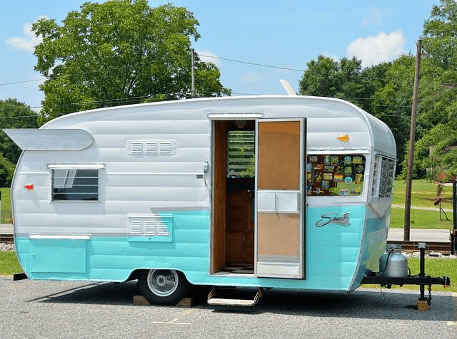
If you are an RV owner, ensuring that it’s properly maintained is pretty essential. It is how you guarantee that your vehicle’s vitals remain functional even when you’re not on the move. Appropriate maintenance is the difference between numerous long trips to the mechanic and the many happy, adventurous moments on the road.
Caring for your recreational vehicle is one way that not only helps to guarantee great road trips, but also helps to retain your RV’s value. You should carefully follow the manufacturer’s manual to ensure that you do what keeps the vehicle in an impeccable condition.
But what are the most basic maintenance tips you should know? Well, check out our comprehensive list:
Replace Oil and Oil Filters Accordingly
Just like any other engine, RV’s engine needs clean oil for optimum performance. Changing your RV’s oil and oil filters, regularly, is therefore quite necessary. If you don’t change these components as required, a broken engine might be inevitable.
So, to avoid costly overhauls, ensure that your RV engine oil is regularly checked and changed. It might save your wallet up to $10,000, according to estimates by Camping World RV and Outdoor. For RVs, many manufacturers recommend you change the oil after every 3,000 – 4,500 miles. You should, however, always confirm with your RVs owner’s manual for specifics.
Change the Fuel, Air, and Other Filters
Simple things like changing air, hydraulic, and fuel filters are quite important in the proper functioning of your recreational vehicle. These filters, if not regularly checked and changed, can cost you an upward of $2,500. This is due to increased fuel consumption, overheating problems, and oxidation issues in your RV’s hydraulic system.
This means that, although they might seem like minor tasks, changing these filters have an immense impact on your vehicle’s performance.
Check the RV’s Water System
Water is a vital component of a successful road trip in your RV. Since it will be your new home for the entire RVing adventure, it then means that you must have a reliable source of water. This includes both the wastewater, and clean drinking water systems.

Your RV’s wastewater system must be kept in good working condition, in order to enjoy a smooth trip. This will ensure that there is no clogging of waste, which can cause damage to other parts of the vehicle.
Clean water is also essential for a stunning adventure. Sanitizing your freshwater tank is one way of ensuring that you have clean water that is free from bacteria. You don’t want your whole trip to be ruined by avoidable waterborne complications.
But, even after sanitizing your water tank, you can never be completely sure that the water is 100% safe for consumption. That’s why an RV water filter is a must-have component in your clean water system. It is an even surer way of ascertaining your water’s purity.
Inspect Your RV’s Roof Regularly
The roof of an RV is another crucial part that must be checked regularly. The roofs are pretty susceptible to harsh weather elements such as too much sun and water, which may cause water leaks.
Therefore, you should make it a habit of inspecting your roof to identify any damages that might be present. Also, be keen to clean it often to prevent any accumulation of materials such as leaves or dirt.
But, even as you do your regular checks and maintenance to the roof, you can also help protect the roof from these weather elements. This will ensure that you don’t have to deal with water leaks every now and then. One way to do this is to keep your RV under a carport. But if you don’t have a carport, a traditional RV cover will still do.
Be sure that any water leaks can pose a grave danger to other internal parts of your RV. It can also lead to unanticipated expensive repairs if the water damages other parts. So, if you find any leak during your inspection, make sure to seal it with appropriate sealants that are compatible with the roof’s material.
Run your generator
If you don’t want to buy a new generator way before time, never let it sit idle for too long. You should always ensure that you run the generator once in a while to keep it in shape. This is mainly because the shelf life of gasoline is about 30 days, after which it starts to break down and might damage some of the generator’s internal components.
“Keeping the gasoline flowing” by running your generator regularly is an excellent way of keeping the gen-set operational. The recommended running time for the generator is at least 2 hours in a month, at around 50% load. This way, you avoid costly repercussions like having to buy a new generator or missing your trip.
Keep your RV’s Brakes Maintained
One thing you should take seriously is the brakes system of your RV. Properly maintaining them is fundamental for your safety, as well as that of any other passenger during your trips. You don’t want the system to fail when you need them the most.
Before you embark on any trip, always ensure that the brakes are working properly, there is enough material on the discs, and that you have enough brake fluid. In addition, maintain the RV’s wheel bearings by making sure they stay lubricated any time you are not on the road.
If you are replacing your brakes, it will cost you between $300 and $500 for the whole package. This includes replacing the seals and repacking the wheel bearings.
Conclusion on Basic RV’s Maintenance Tips
When it comes to keeping your RV always ready for the road, proper maintenance steps must be undertaken. Using the above tips, together with your RV owner’s manual, will ensure that your ride is ever in great shape. And, don’t ignore any action no matter how minor it seems – it might cost you more later.



